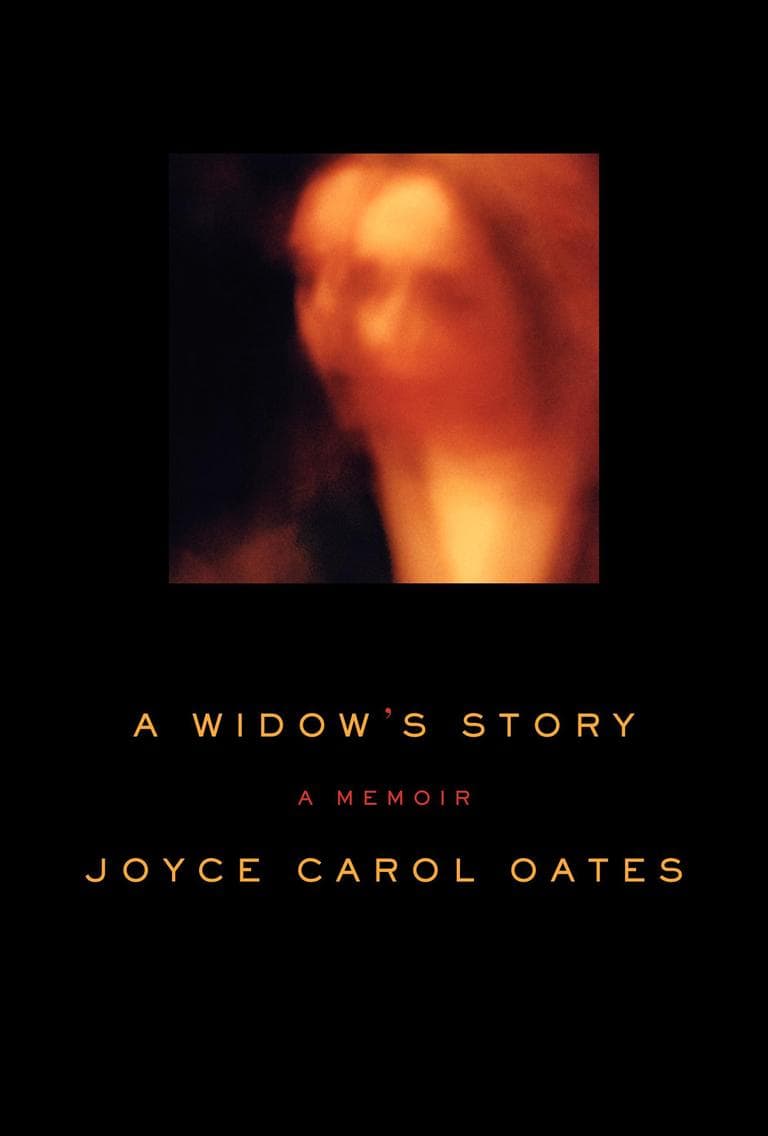Advertisement
Joyce Carol Oates On Becoming A Widow
ResumeWe talk with writer Joyce Carol Oates about her telling of becoming a widow.

Joyce Carol Oates married Ray Smith when she was 22 years old. They had 47 years together, while she wrote fifty novels, countless essays and stories. Then, three years ago this month, Ray went into the hospital for pneumonia and days later was dead.
Joyce Carol Oates was, she now writes, a widow. In a new memoir, she describes tumbling into that experience. The unreality. The guilt. he dead husband’s clothes in the closet. The struggle to hang on to herself.
This hour On Point: Joyce Carol Oates writes a hard, personal book: "A Widow’s Story."
- Tom Ashbrook
Joyce Carol Oates is professor of Creative Writing in the Lewis Center for the Arts at Princeton University where she has taught since 1978. She is the winner of the National Book Award and the PEN/Malamud Award for Excellence in Short Fiction. She has written more than 50 novels, including “We Were the Mulvaneys” and “Blonde.” Her new book is, “A Widow’s Story: A Memoir.”
Excerpt: A Widow's Story: A Memoir
by Joyce Carol Oates
Chapter One
The Message
February 15, 2008. Returning to our car that has been haphazardly parked—by me—on a narrow side street near the Princeton Medical Center—I see, thrust beneath a windshield wiper, what appears to be a sheet of stiff paper. At once my heart clenches in dismay, guilty ap¬prehension—a ticket? A parking ticket? At such a time? Earlier that afternoon I’d parked here on my way—hurried, harried—a jangle of admonitions running through my head like shrieking cicadas—if you’d happened to see me you might have thought pityingly That woman is in a desperate hurry—as if that will do any good—to visit my husband in the Telemetry Unit of the medical center where he’d been admitted several days previously for pneumonia;
 now I need to return home for a few hours preparatory to returning to the medical center in the early evening—anxious, dry-mouthed and head-aching yet in an aroused state that might be called hopeful—for since his admission into the medical center Ray has been steadily improving, he has looked and felt better, and his oxygen intake, measured by numerals that fluctuate with literally each breath—90, 87, 91, 85, 89, 92—is steadily gaining, arrangements are being made for his discharge into a rehab clinic close by the medical center—(hopeful is our solace in the face of mortality); and now, in the late afternoon of another of these interminable and exhausting hospital-days—can it be that our car has been ticketed?—in my distraction I’d parked illegally?—the time limit for parking on this street is only two hours, I’ve been in the medical center for longer than two hours, and see with embarrassment that our 2007 Honda Accord—eerily glaring-white in February dusk like some strange phosphorescent creature in the depths of the sea—is inexpertly, still more inelegantly parked, at a slant to the curb, left rear tire over the white line in the street by several inches, front bumper nearly touching the SUV in the space ahead. But now—if this is a parking ticket—at once the thought comes to me I won’t tell Ray, I will pay the fine in secret.
now I need to return home for a few hours preparatory to returning to the medical center in the early evening—anxious, dry-mouthed and head-aching yet in an aroused state that might be called hopeful—for since his admission into the medical center Ray has been steadily improving, he has looked and felt better, and his oxygen intake, measured by numerals that fluctuate with literally each breath—90, 87, 91, 85, 89, 92—is steadily gaining, arrangements are being made for his discharge into a rehab clinic close by the medical center—(hopeful is our solace in the face of mortality); and now, in the late afternoon of another of these interminable and exhausting hospital-days—can it be that our car has been ticketed?—in my distraction I’d parked illegally?—the time limit for parking on this street is only two hours, I’ve been in the medical center for longer than two hours, and see with embarrassment that our 2007 Honda Accord—eerily glaring-white in February dusk like some strange phosphorescent creature in the depths of the sea—is inexpertly, still more inelegantly parked, at a slant to the curb, left rear tire over the white line in the street by several inches, front bumper nearly touching the SUV in the space ahead. But now—if this is a parking ticket—at once the thought comes to me I won’t tell Ray, I will pay the fine in secret.Except the sheet of paper isn’t a ticket from the Princeton Police Department after all but a piece of ordinary paper—opened and smoothed out by my shaky hand it’s revealed as a private message in aggressively large block-printed letters which with stunned staring eyes I read several times like one faltering on the brink of an abyss—
LEARN TO PARK STUPPID BITCH
In this way as in that parable of Franz Kafka in which the most profound and devastating truth of the individual’s life is revealed to him by a passer-by in the street, as if accidentally, casually, so the Widow-to-Be, like the Widow, is made to realize that her situation however unhappy, despairing or fraught with anxiety, doesn’t give her the right to overstep the boundaries of others, especially strangers who know nothing of her—“Left rear tire over the white line in the street.”
This program aired on February 28, 2011.